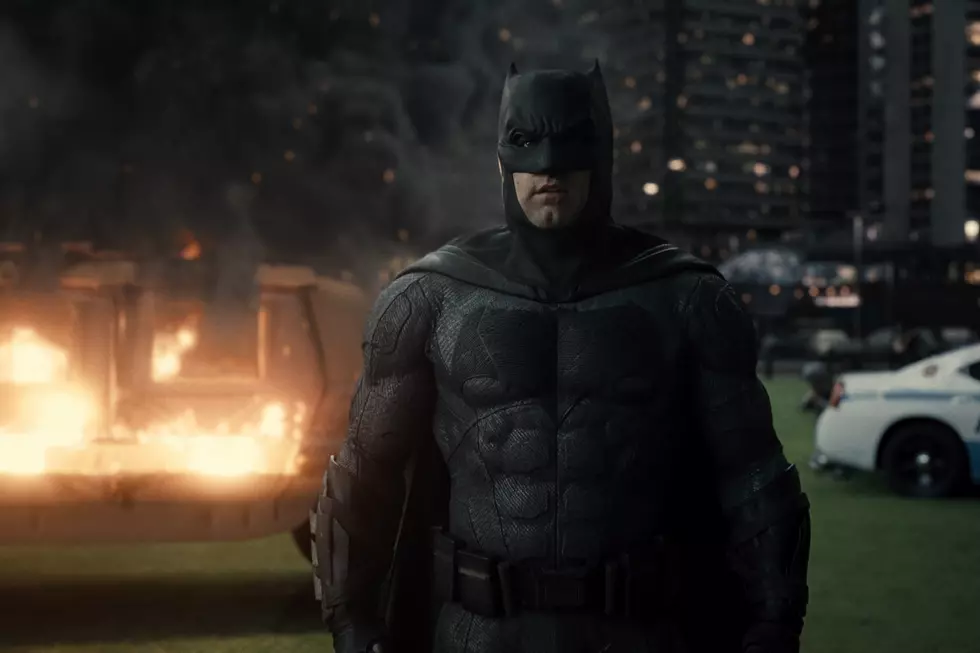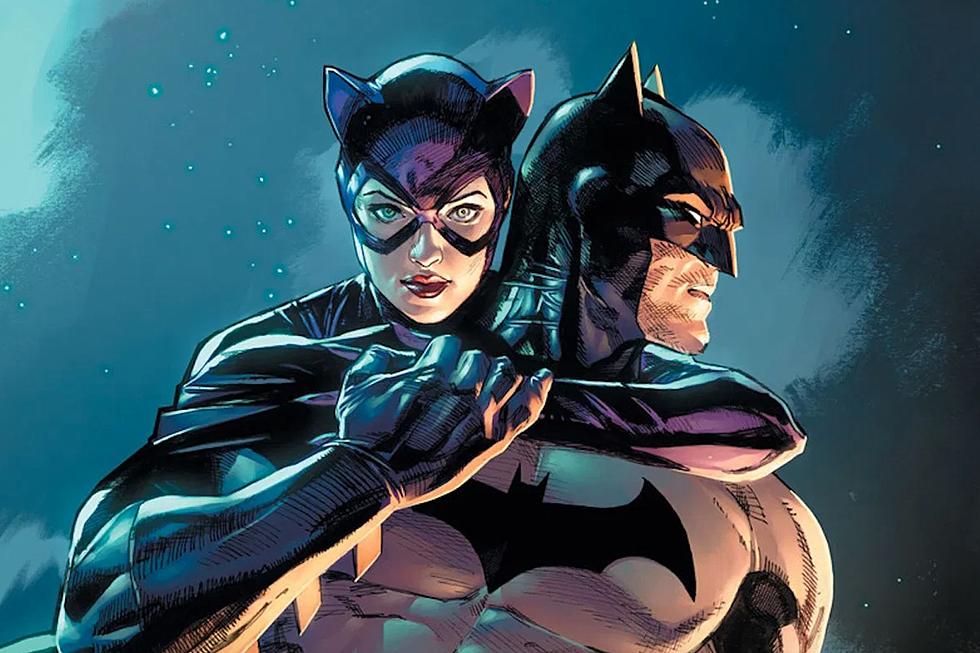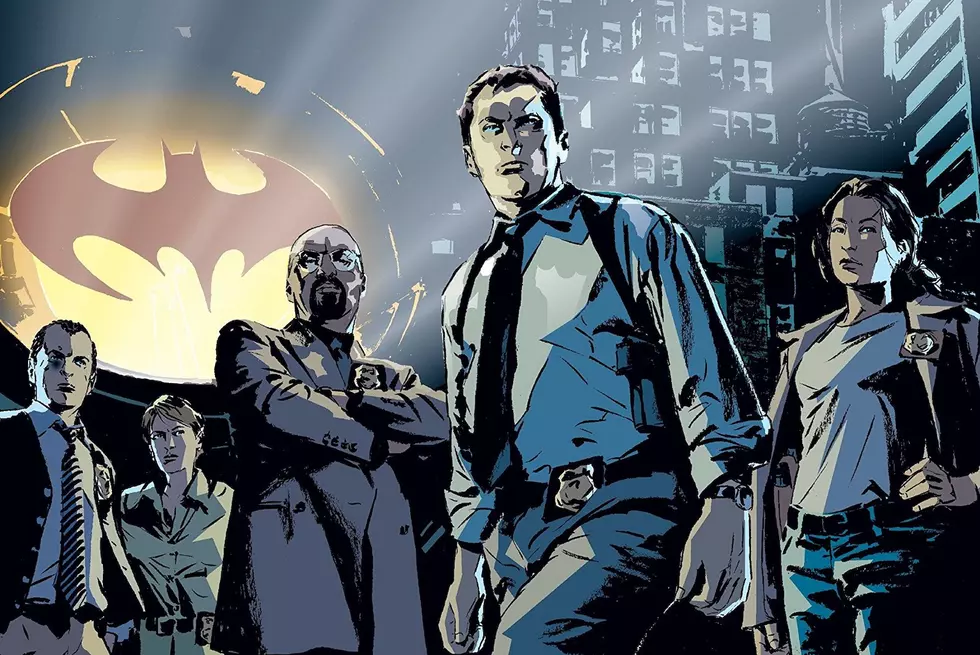
Ask Chris #160: Gettin’ Older
Q: Does it ever bug you that comics characters don't age in any significant manner? --@sackobooks
A: I'm not gonna lie to you, Sacko: The first time I looked at this question, I dismissed it almost immediately, because to me, the answer seems pretty obvious. I mean, I am a guy whose career is defined by being super into a guy who's been in his early thirties for the past 74 years, so it's clearly not that big an issue. But then I got to talking to Matt Wilson about it, and he made me realize that there's actually a lot there to talk about.
After all, some characters do age. But do they need to?
What it really comes down to is that, at their heart, superhero comics are meant to go on forever. They're often referred to as "modern mythology" because they frequently function as little morality plays starring these heroes and villains full of metaphors and super-powers, but that's not really an accurate comparison, is it? After all, generally speaking, most mythology was not designed to make money for a parent corporation. With superhero comics, that's pretty much the primary goal.
Don't get me wrong: Most creators go into superhero comics wanting to tell stories, and it's pretty easy to see the ones that are only in the money, because they end up writing Kick Ass making absolutely terrible comics. For the superhero genre, though, financial success is paramount, because that's how they continue to exist. Superheroes are, in one respect, meant to be self-perpetuating profit machines, which means that the stories are supposed to go on forever. There's never meant to be an ending, and a little thing like a character getting old and dying tends to undercut their marketability a little. Even Sherlock Holmes couldn't get around that one.
That might sound like a pretty cold assessment, but it's really just the way the genre works, and it goes hand in hand with all the other reasons that I love them. There's a good reason why the most popular and beloved characters tend to be the ones that have been around forever -- Batman, Spider-Man, even villains like the Joker and Dr. Doom -- and it's because that success has allowed them to grow and change and become the characters we love over time. If Batman had flopped in Detective Comics #27, we wouldn't be sitting around talking about how he's one of the most complex and fascinating characters in pop culture. We would, at best, see a weird footnote in Wikipedia about a third-rate Shadow ripoff created by a medium-talent huckster who later got into forged clown paintings.
Point being, the idea of going on forever in what Jonathan Hickman called a "perpetual second act" is one that's been a part of superhero comics for as long as there have been superhero comics, and while it's probably most prominent there, it's not entirely unique to the genre. James Bond, for example, ages like a typewriter carriage, only getting so far before a bell rings and he gets slapped back to the other side of the page when a younger actor takes over. So in that respect, characters not aging is something that I'm used to.
Batman and Superman being 29 forever is fine, because they need to be vital and relevant. And if a character's created right, then they can always be relevant and vital. We're always going to want stories about people with fantastic abilities choosing to do the right thing, about power and responsibility, about dangerous villains being foiled at the last second by a combination of razor-sharp intelligence and karate kicks. Getting a character who has to stop and mention that his knees have been turned to dust after decades of swooping down from gothic towers on a zipline can be good for a different take on things, but generally speaking, it slows things down in the main story and pulls the focus away from the action. It's way more important to me that characters acknowledge their history than actually try to live up to it realistically -- Superman shouldn't be surprised when Lex Luthor shows up in a green and purple robot battle suit because he's seen it before, even if he's still "29" after all these years.
But that doesn't mean that it can't work.
It really comes down to the character and how the creators choose to approach them. One of the characters Matt brought up in our original discussion was Judge Dredd, who does age in real time, and who has gotten older as the series goes on. There's a pretty obvious out for it in the comics -- Dredd's a clone with robotic implants living in a weird sci-fi future that recently showed an "elderly" character identified as being 158, and he started his career young -- but he's still 45 years older than he was when John Wagner, Carlos Eszquerra and Pat Mills introduced him. And Wagner, who's been the primary writer shaping those stories, has used that to great effect with the character. The Dredd we have now isn't the Dredd of the early stories. He's older, he's been through a lot, and those experiences -- and the knowledge that he is aging and that even under the best circumstances, he won't be around forever -- have changed him. He's the same character, he's still consistent, but he looks at things differently because he's not the young man he was in, uh, 2099.
It might not be the best example, but the same could be said for Tom Batiuk's Funky Winkerbean. The characters remained static for a while, but thanks to a couple of "time jumps," they're about as old as they "should" be for characters who were in high school back in the '70s, and they've changed accordingly. They same characters who joked about gym class in those early strips are now smirking through their terror at the inevitability of death. You know, like us old people do.
That said, as much as I harp on consistency being way more important than realism in a superhero story, it doesn't even bother me when both approaches are going on at once. Batman has more-or-less stayed the same age for as long as he's been around, but during that same amount of time, Dick Grayson has grown up and become an adult. If there was any consistency at all applied to that, then one of those things shouldn't have happened. Again, there's an easy out by situating everything into that sliding ten-year timeline that they used to have (or a five-year timeline, if you're trying to figure out how the current DC Universe is supposed to work) and just saying that Robin showed up really early, but it completely falls apart when four other characters have shown up to replace him and then either aged out themselves or died.
It shouldn't work at all, but it does. Or at least, it doesn't break anything beyond repair, because it's just something that we accept when we buy into the fiction of Batman. He has a bunch of sidekicks and assorted hangers-on, and as long as they all fill different roles and represent different things, it all works.
It can even work when both approaches are applied to the same character. Garth Ennis had an eight-year run writing The Punisher, and during that run, it was very important that Frank Castle had served in the Veitnam War.
It was such a central theme in Ennis's work that he ended his run on Punisher MAX with a story that was as much about Vietnam as it was about the Punisher, with text pages from a fictional book about a soldier who served in Castle's unit. It informed Ennis's approach as a writer, and it informed how the artists drew him, particularly Gorlan Parlov, who made the Punisher a solid wall of an older man. He had to be that old to fit that timeline, because he was anchored to a real-life event that colored everything from his choice in weaponry to the way Ennis depicted his mental state.
In Greg Rucka and Marco Checchetto's more recent run, though, Vietnam was never brought up. For Rucka's approach, it was less important what war Frank Castle had been involved in than the idea that he gave years to the service of his country, protecting an ideal of life that was taken from him when he returned home. The event didn't matter, just the ideas at its core.
They're both valid takes on the character, because both work with what makes the Punisher the Punisher. It just changes the specifics, and in that respect, we're right back to where we were with Dredd. A consistent character, but with different pieces that can be put together to make different stories.
So no, characters not aging doesn't bother me, because it doesn't matter if Batman's parents were gunned down in 1939 or 2008. What matters is what he does after, and, in theory at least, that he keeps doing it in stories that I like.
More From ComicsAlliance









